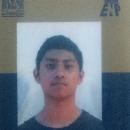Arrangements
Video Quiz
Introduction to the topic of how to express arrangements with present tense.
Téléchargez la version pour jouer sur papier
Âge recommandé: 15 ans
Créé par
Mexico
Top Jeux
-

Video Quiz
Watch the video and answer the questions!
Yufei JianUnited StatesVideo -

Video Quiz
History of Dutch's cycle paths
Educaplay Educational ResourcesSpainThe Netherlands is well known for its excellent cycling infrastructure. How did the Dutch get this network of bicycle paths? -

Video Quiz
Why do cats "knead"?
Educaplay Educational ResourcesSpainDiscover the causes that explain why cats "make cookies". -

Video Quiz
Music genres
Sole RiilloArgentinaListen to the music and say what genre it is -

Video Quiz
Watch the following video and answer questions.
JAVIER SIDEL RAMONEcuadorPlease, watch and listen the following carefully. Then, anwer the questions. https://www.youtube.com/watch?v=TcMBFSGVi1c




